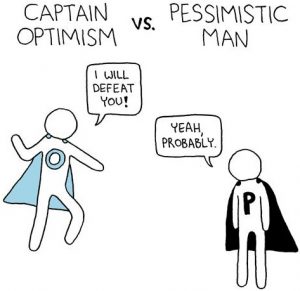If you’re tired of taking things personally I’m not surprised. It’s a thing right now. Here’s how I know.
A key component of our Academy for Compassionate Leadership is a 30-minute private and confidential coaching conversation designed to customize the Academy experience for everyone.
They’re great.
During these calls, each participant identifies a personally meaningful leadership goal that will help them be more effective.
And I quickly learn what’s important to every individual, as well as what’s happening in the organization
A trend that’s popped up a bunch in the past while? Folks struggling with taking things personally.
- They report feeling insulted by others whose behaviour seems inappropriate or unkind.
- They interpret feedback as kinda life-threatening.
- They wonder, “Why does XYZ always happen to me?”
- They say, “I’m a good person. I don’t deserve this.”
Sometimes they think they just need thicker skin or more confidence. And sometimes they want to learn how to tell people to stop being jerks.
Bottom line: When confronted by challenges, they’re tired of flying off the handle, or shutting down, or ruminating, or replaying interactions in their head 50 billion times.
Sound familiar? Yeah, me too.
For whatever reason, emotional or autobiographical, taking things personally is something most of us do.
Oy.
Fun Fact #1: Pessimism doesn’t actually fix anything.
 Taking things personally is one of “the three P’s” of a pessimistic explanatory style that we dig into on The Positivity Adventure. It’s a negative way of explaining our circumstances. (The other Ps are permanence, as in, “this will never end,” and pervasiveness, or “everything is bad.”)
Taking things personally is one of “the three P’s” of a pessimistic explanatory style that we dig into on The Positivity Adventure. It’s a negative way of explaining our circumstances. (The other Ps are permanence, as in, “this will never end,” and pervasiveness, or “everything is bad.”)
Huh. So what do you think is the likelihood we can actually improve difficult situations with negative emotions narrowing our view of possible actions?
Slim to none sounds about right.
As for learning and effective problem-solving?
Not gonna happen.
So then why on earth, as rational, functioning, intelligent beings, do we so often default to this kind of pessimistic thinking?
Cuz we’re affected by what happens around us, including our interpretation of what’s happening around us. And our interpretation is often distorted by misunderstandings, now turbo-charged by stress, leading to more pessimism.
Yeesh. Talk about a vicious cycle.
Fun Fact #2: We’ve learned to feel this way.
Our understanding of negativity traps comes from research on learned helplessness—the idea that repeated exposure to situations we can’t control leads us to expect more of the same.
Makes sense.
When we’re in the clutches of pessimistic thinking, we feel pretty powerless. Something we’ve all felt plenty over the last three years.
So then we feel isolated and stressed, which triggers unhelpful habitual thoughts or emotions, like feeling left out, or different than others, or persecuted . . . all contributing factors for pessimism.
 Oh but wait. There’s more.
Oh but wait. There’s more.
In our certainty that events are all about us, we completely ignore the fact that the other person probably has their own perceptions, skewed by their habitual emotions and thoughts.
So when we voice our stuff, it triggers their stuff, and suddenly we’re both caught in a war of distorted preconceptions.
As my SIY teaching-colleague John Windisman puts it: “They’ve set off a bomb, and I got hit by shrapnel.” Or, as my coaching pal Nicki Weiss adds: “They don’t save it for you.”
Ugh.
Here’s the thing.
Intellectually? I get all this. Absolutely.
In the moment? Not so easy.
Fortunately, research suggests ways to move forward with acceptance and grace . . . for ourselves and others
How to De-Escalate Sticky Situations.
 Step 1: Practice self-compassion. Tons of studies show that self-compassion in the midst of distress increases our:
Step 1: Practice self-compassion. Tons of studies show that self-compassion in the midst of distress increases our:
- willingness to learn,
- motivation to improve,
- willingness to invest the necessary effort to improve,
- ability to navigate stress and sticky emotions.
Do it whatever way works for you: a hand on your heart, telling yourself a la Dan Harris, “It’s all good dude. I know this sucks, but I’ve got you,” or intentionally practicing one of your existing daily self-compassion actions.
 Step 2: Engage all those capabilities that self-compassion activates—your pre-frontal cortex (your thinking brain), optimism, curiosity and empathy.
Step 2: Engage all those capabilities that self-compassion activates—your pre-frontal cortex (your thinking brain), optimism, curiosity and empathy.
- Describe the problem in third person, as if you’re witnessing rather than experiencing the event.
- Sort out the feelings from facts. How much is real versus perceived? Did they really intend to hurt you?
- Kindly remind yourself: This likely has absolutely nothing to do with me. They’re a human being struggling, just like me.
- Get curious about the other person, and call on your cognitive empathy. What were they thinking and feeling? What’s going on in their world that may have caused them to behave this way?
- Finally, try this bonus exercise to investigate your thoughts.
Step 3: Consider what would be most kind and helpful to you and them (maybe even a little radical candor) and take action.
 Easy Peasy?
Easy Peasy?
Well, no. Unfortunately, we can’t eliminate the difficulties inherent in working with others, especially under today’s uncommon stressors.
And as a leader, your emotions have a big impact on others.
So what can you do?
Expand capacity—your own and your team’s—to be with the difficulty in a way that’s kind to everyone involved.
As a leader, that’s a task you can take personally.
Especially for Leaders & Teams in Seniors Care.
Seniors Care presents a specific dynamic that’s important to note: Care staff are often told “don’t take it personally” when they encounter threatening behavior by residents or family members.
Of course you already educate your staff on de-escalation and behaviour-modification strategies. And yes, you remind them of mitigating circumstances, like when residents have dementia or family members have difficulty coping.
Yet the fact remains: Caregivers can be exposed and subjected to some pretty awful situations.
In those cases, following the above three steps to “not take things personally” takes effort. Researchers call it “emotional labour” for good reason.
So people burn out, leave, “quiet quit,” or deliver poor-quality care.
Understandable? Yes. Sustainable? Not so much.
 Here’s more research-tested ideas that may help you and your team members with that first step, without it sucking them dry.
Here’s more research-tested ideas that may help you and your team members with that first step, without it sucking them dry.
- Be a Compassionate Leader. Recognise that your staff are suffering. Acknowledge the difficulty. Validate their feelings, because it doesn’t feel good to be treated poorly, with or without malicious intent.
- Support them in giving themselves compassion in those moments. Do the same for yourself.
- And then move into steps 2 and 3.






